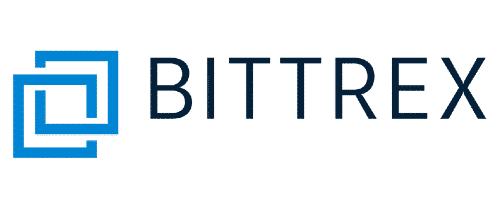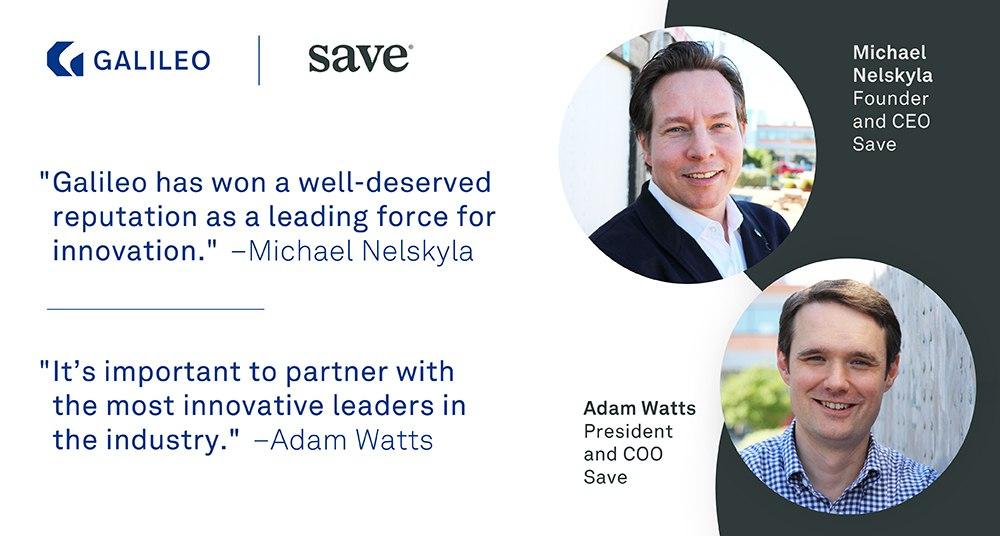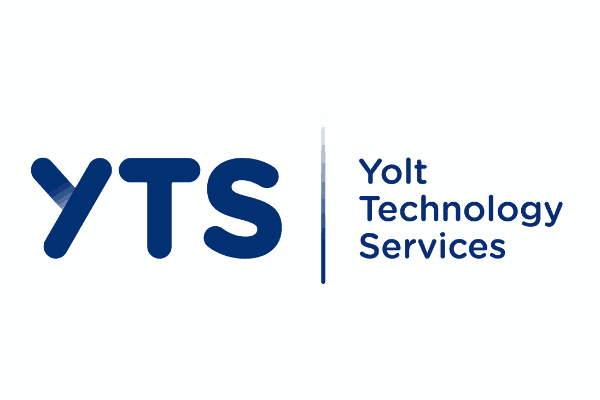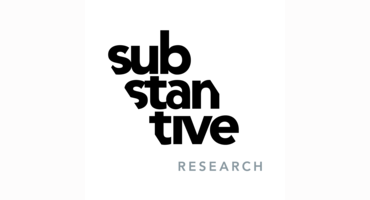Published
- 06:00 am

Tata Communications today announces its financial results for the quarter ended September 30th, 2020.
Highlights|Q2 FY2021
Data services portfolio
· Robust growth in Data business; revenue grew by +7.2% YoY on the back of strong performance across segments.
· Data EBITDA was at INR 1,108 crore (USD 149 Mn); up +47.2% YoY with the margin expansion of 830 Bps YoY led by strong profitable growth in Data business and cost efficiency initiatives.
· The pace of digital adoption has increased. Remote working, cloud adoption and greater use of digital applications are driving the demand for our services. Our India enterprise business grew by 5.1% YoY and international enterprise business grew by 16.4% YoY. This has led to increase in both revenue as well as profitability.
Consolidated financial highlights
· Consolidated revenue was at INR 4,401 crore (USD 591 Mn); up +3.0% YoY on the back of growth in Data business.
· Consolidated EBITDA was at INR 1,158 crore (USD 155 Mn); increase of +38.9% YoY and margin expansion of 680 Bps as a result of strong profitable growth in data business and focus on operational efficiencies.
· Consolidated PAT at INR 384 crore (USD 52 Mn) as compared to a profit of INR 54 crore (USD 8Mn) in Q2 FY20; growth of +613% YoY.
· Net debt at the end of Q2 was INR 8,631 crore as compared to INR 9,008 crore in Q1 FY21; reduction of INR 377 crore despite dividend payment of INR 114 crore during this quarter. Net debt to EBITDA (TTM) is now at 2.3 times as compared to 2.8 times for the same period last year.
· CAPEX for this quarter was INR 318 crore as compared to INR 372 crore in Q1 FY21.
Consolidated Nos. | INR Crore | QoQ Growth | YoY Growth |
Gross Revenue | 4,401 | (0.0%) | 3.0% |
EBITDA | 1,158 | 11.1% | 38.9% |
EBITDA margin | 26.3% | 260 Bps | 680 Bps |
PAT | 384 | 49.2% | 613.4% |
Commenting on the results, A.S Lakshminarayanan, MD and CEO, Tata Communications, said: “We have had a strong performance in Q2, as we continue to deepen our customer engagements and support enterprises to seamlessly embark and advance on their digital transformation journeys. Leveraging the shift to cloud-first, internet-first strategies, we are innovating across our portfolio to offer solutions that are tailored to this new digital-first world. We see great opportunities ahead, as organisations look to harness the power of technology to transform their business models and drive competitive differentiation and sustainable development.”
Commenting on the results, Pratibha K. Advani, Chief Financial Officer, Tata Communications, said: “Data business continues to grow at a healthy pace and profitability has improved due to our focus on operational efficiencies. Our margins have expanded, and we have witnessed 3 successive quarters of double-digit EBITDA growth leading to strong PAT. There has been a robust improvement across all financial parameters; our profitability and cash flow generation has improved significantly in the last few quarters leading to a stronger balance sheet for the future.”
An investor fact sheet providing detailed analysis of the results for the quarter ended September 30th, 2020 has been uploaded on the Tata Communications website and can be accessed here.
Business highlights | Q2 FY2021
Customer wins in Q2:
· Croma, a Tata group company and one of India’s leading consumer durables and electronics retailer, is able to bring the assisted selling experience of their physical store to the customer’s home digitally with Tata Communications Digital Customer Experience Platform (Tata Communications Store At Home). Part of our Secure Connected Digital Experience (SCDx) proposition, the customer experience platform enables growth for enterprises like Croma by helping them make the shift to video commerce and contactless experiences for their customers.
Customers experience in-store personalised buying by virtually connecting with Croma’s intelligently identified product specialists to browse products, offers and payment options through this solution. A Croma associate can co-browse the website along with the customer; play pre-recorded, high quality product demos, while having the platform open for conversation and live demonstration of products from the store. This helps consumers make informed yet seamless purchases over a video call, in real-time. Within the first week of launch, Croma has already witnessed a healthy customer conversion rate of 20%. This is a great validation of Tata Communications’ vision of creating a platform that combines the personalisation of an in-store experience with the ease of buying digitally from anywhere. For Croma, this new sales channel will help in further strengthening its leadership position in the omni-channel retailing space.
· In Q2 FY21, Tata Communications continued its relationship with Star India Pvt Ltd, (one of the leading media houses of India), for the third year, to help them with the production and live broadcast of IPL 2020 tournament to fans globally. While the action is happening amidst these challenging times, Indian cricket fans continue to enjoy the same superior video quality resolution and near real time viewing experience with our cutting-edge, ultra-low latency managed service for LIVE video broadcast - Video Connect. With our solution, Star is broadcasting and streaming the matches in English, Hindi and seven other regional languages, with the capability to add many more. Our media solution supports Star with satellite-based distribution of the IPL world feed to various global broadcasters from the site. It gives them the flexibility to capture and deliver the programming, across all IPL matches, with a reduced crew of on-site operators, and with 24*7 service management.
· De Tune, a global media services company whose customers include a wide variety of corporate clients and some of the largest eSports tournaments in the world, has selected Tata Communications as the architect of a high-quality broadcast viewing experience for live events produced virtually anywhere on the globe. De Tune has been able to simplify their global production operations by consolidating multiple vendors into one cohesive media ecosystem with the help of Tata Communications’ end-to-end live video services.
As a pioneer in the remote broadcasting industry, De Tune sourced forty-plus feeds from across Europe, South Korea, Taiwan, and Singapore, bringing them back to a Los Angeles based studio for production then streamed the finished product to twenty-two global outlets in near real-time. Leveraging Tata Communications’ Media Cloud, De Tune has automated its production workflow along with video format conversions and online content delivery by accessing our transcoding services and Video Content Delivery Network (CDN). This next-generation media ecosystem has enabled De Tune to effectively collaborate, allocate resources, and allow aggressive scaling in their operations with global reach.
· Tata Communications is enabling Victor Mobile, to launch customised pre-paid, post-paid and hybrid mobile plans (voice, data, SMS and media content) for subscribers across countries, starting with UK, with our cloud-based Tata Communications MOVETM platform. Victor Mobile, who envisions to become one of the world’s largest multi-play MVNO (Mobile Virtual Network Operator), will be able to scale and launch their MVNO operations to other parts of the world with faster time-to-market with Tata Communications MOVETM MVNE (Mobile Virtual Network Enabler) services, which leverages our strong network infrastructure to integrate with leading mobile network operators, using their cellular services. This will help Victor Mobile deliver better speed and voice quality for its customers. Victor Mobile also plans to offer their medium and large enterprise customers our IoT based connectivity services through Tata Communications MOVETM platform.
Awards: Best employer
· Recognised as one of the Best Companies for Women in India by Working Mother and Avtar for fifth year in a row
Awards: Analyst recognition
· Omdia: Market leader in remote IP Production for our media specific Remote Production offering
· Frost and Sullivan Award: Asia-Pacific Managed UC Services Provider of the Year 2020
· Leader in Global Data Wholesale Antifraud Competitive Landscape Assessment 2020
· Forrester Now Tech: European Managed Security Services Providers - mid size & Managed Security Service Providers in APAC- large vendors
· Major Player in IDC MarketScape: Worldwide Managed SDWAN Vendor Assessment 2020
Awards: Industry recognition
· Carrier Community- Global Awards 2020: Winner of Customer Experience Excellence Award
· The Peak – Tech Laureates 2020, Connectivity category
o Best Enterprise Service Provider
o Best Enterprise Network Transformation Provider
o Best Enterprise Managed Security Services Provider
New launches:
o Tata Communications launched ‘Secure Connected Digital Experience’ to help enterprises rebuild and reset for a post-COVID world: Tata Communications launched the ‘Secure Connected Digital Experience’ (SCDx) to meet the growing, worldwide demand for new ways of operating, which includes far higher levels of working from home, rising security risks, a shift to digital commerce and more contactless experiences for employees, customers and supply chain partners.
o Tata Communications secured local telecom license in the Kingdom of Saudi Arabia:
o Tata Communications secured a Type B telecom license in the Kingdom of Saudi Arabia (KSA). The license entitles Tata Communications to provide Internet Service Provider (ISP) and related telecom services to enterprises in a defined capacity, along with local currency billing for end-customers in KSA. This will enable the company to make the shift from offering services as a foreign carrier in the Middle East to a local licensed service provider.
Related News
- 08:00 am

Bittrex Global (Bermuda) Ltd. has announced the launch of leveraged tokens under the supervision of the Bermuda Monetary Authority (BMA). Leveraged tokens as a product are aimed at institutional investors and experienced traders looking to increase their exposure to cryptocurrency markets.
As a product, Leveraged Tokens offer increased exposure to the potential upside for Bitcoin, Ethereum and Cardano traders as well as an insurance hedge should market movements contradict their analysis. Given the inherently volatile nature of cryptocurrency markets, leveraged tokens are expected to play an increasingly important role in the development of this nascent sector within the broader Financial Services industry. If you’d like to learn more about leveraged tokens, please read our handy guide to leverage tokens here.
Stephen Stonberg, CFO/COO, Bittrex Global, said: "For some time institutional investors and professional traders have had to confront a combination of negative bond yields and highly valued equities buoyed by government spending. Investment in cryptocurrencies has enormous potential to offer strong future returns, the Bermuda Monetary Authority has provided a secure environment for Bittrex Global to cater to this important class of investor."
The launch coincides with Bermuda’s Virtual Tech Summit 2020, which the Bittrex Global team will be actively participating in. Following the recent period of growth in the DeFi asset class, Leveraged Tokens reflect the increasingly mature nature of investors and traders seeking more complex tools in order to navigate these markets. Bittrex Global aims to serve all investors whether they are retail or institutional with as broad a suite of products possible within the highest levels of compliance.
Related News

John Clarson
Director – Quantitative Services at GTreasury
Global supply and demand remain unsettled as pandemic recovery struggles forward with a still-uncertain future. see more
- 05:00 am

BMLL, the award-winning data and analytics company, today announced that BMLL Data Feed will be available to US market participants via Crux Informatics (“Crux”), the data delivery and operations firm that helps companies reliably get the data they need, how they need it and where they need it.
The data distribution agreement complements BMLL’s existing direct arrangements to deliver data and analytics to their US client base, leveraging Crux’s network and pipelines to leading data consumers and analytics platforms around the world.
BMLL operates at the cutting edge of capital markets. Their mission is to unlock the predictive power of pricing data and offer clients the insight they need to understand how markets behave and make more informed trading decisions.
BMLL’s Data Feeds are pre-computed from the most granular, Level 3 order book data and provide market participants with actionable insight needed to outperform the competition. BMLL analytics are used by leading buy-side and sell-side institutions as well as major exchange groups and trading venues to better understand and analyse trading behaviour on their venues. The BMLL Data Feeds cover venue analytics, trading costs, alternative pricing, pricing analytics and trading analytics.
Michael Rude, Head of Go-to-Market at Crux, commented: “We are pleased to add BMLL to our ecosystem of more than 100 data providers. The granularity of data, covering the full depth of the order book, is a unique addition to the financial markets data available to our clients via our platform. We look forward to our collaboration.”
Paul Humphrey, CEO of BMLL Technologies, said: “The need for timely data insights and analytics has never been greater as the industry navigates heightened market volatility in light of the global pandemic and also upcoming major political events across Europe and the US. Our partnership with Crux will support our ambition to increase access to our award-winning data and analytics products to a US client base, by adding to our already existing data delivery and distribution capabilities.”
Related News
- 04:00 am

EBANX, fintech company specialized in payment solutions for Latin America, announced the Push LatAm, an initiative that comprises expansion of its operations to new markets in Central and South Americas; the offering of hybrid services within Latin American countries; and the launch of EBANX GO, a prepaid card that offers a digital payments account in a partnership with Visa, to other markets in the region besides Brazil; all within the next 12 months. Push LatAm was announced this Thursday, October 15, at the Latin America Summit, EBANX annual event about business in Latin America.
EBANX expansion to Central America will start in Panama, Costa Rica, Dominican Republic and Guatemala. Paraguay, in South America, is also a destination. These five new markets will add to the current nine where the company already operates – Brazil, Mexico, Colombia, Argentina, Chile, Peru, Uruguay, Bolivia and Ecuador.
Besides the geographical expansion, Push LatAm also consists of model expansion. After having unveiled its local payment processing, EBANX will now launch its hybrid model, making things more flexible for global companies that have offices in the region, in a fully compliant way. By combining cross-border and local processing services within the same territories, this new model will allow local settlements for merchants, starting by South American countries.
And following a market trend of electronic payments and digital accounts that was accelerated by the pandemic in Latin America, EBANX will also launch EBANX GO in other LatAm markets. The e-wallet was soft launched in Brazil in the beginning of 2020, with a Visa card and a digital payments account, and has been growing steadily ever since. Around 60% of the current purchases made with the EBANX GO card are within EBANX merchants, proving the product can also work as a performance tool for them, besides being an easy-to-use payment option for consumers in the region.
"The Push LatAm initiative reflects our mission from the beginning of EBANX: to create access, to connect Latin Americans and global brands, always with a customer and product-driven mindset. Expanding our footprint and our solutions right now is the perfect realization of this goal. This will enable us to keep excelling in our commitment with Latin America: to be highly specialized in the region, translating each one of its countries and their singular cultures to businesses around the world," said João Del Valle, co-founder and COO of EBANX.
Related News
- 04:00 am

Save and Galileo announced a partnership agreement to use Galileo's powerful and customizable API-based payments processing platform to process transactions and funding of Save customers' Debit Invest debit cards and Save Market Savings accounts.
Save, a fintech startup that enables higher yields on savings and checking accounts, and Galileo, the API standard for card issuing and digital banking, expect to process more than $7 billion of customer transactions in the first three years. Save joins other prominent fintech companies on Galileo's roster of clients, including Chime, Greenlight, MoneyLion, Monzo, Revolut, SoFi, TransferWise and others.
"Galileo has won a well-deserved reputation as a leading force for innovation, seamless execution and tech-driven efficiency in financial services, making it easier for fintech companies to work with banks and add value for customers," said Michael Nelskyla, CEO of Save. "Our relationship with Galileo builds a robust regulatory framework for safe processing of customer deposits and debit card transactions. Our customers can feel comfortable and confident that their money is secure while their Save accounts are being opened, during transfers between banks and with every transaction on their Debit Invest card."
"Customers globally are shifting to digital banking as they look for innovative financial solutions that might not be offered by traditional banks, and we see Save as a significant addition to the Galileo roster of clients," added Galileo CEO Clay Wilkes. "Save has big, ambitious goals to help people earn higher yields on their savings while still getting the safety of FDIC-insured deposits. Every transaction that Galileo helps Save process furthers the mission of giving customers more value from their bank accounts."
Galileo's robust payment processing platform supports Save customers signing up for a new Save Market Savings Account or Save Debit Invest card and makes it fast and seamless for Save's customer accounts to integrate with Save's bank partners while fulfilling the banks' FDIC regulatory requirements.
"Galileo will make it easier for Save to help our customers open accounts, fund their accounts and integrate those accounts with our bank partners' back-end systems," said Adam Watts, president and COO of Save. "When you're building something new in financial services and set big growth targets like Save has, it's important to partner with the most innovative leaders in the industry. Galileo is one of those leaders, and we look forward to working with them to keep making amazing things happen for digital banking and fintech customers."
Save invites new customers to sign up today at: www.joinsave.com
Related News
- 04:00 am

The African internet economy is expanding quickly, with online commerce in the region growing 21% year-over-year, 75% faster than the global average. In order to help increase Africa’s online GDP, Stripe has entered into an agreement to acquire Paystack, a technology company based in Lagos that makes it easy for organizations of all sizes to collect payments from around the world.
Today, more than 60,000 businesses in Nigeria and Ghana use Paystack to securely collect online and offline payments, launch new business models, and deepen customer relationships. Incredibly, Paystack already processes more than half of all online transactions in Nigeria. Paystack has ambitious plans to expand across the continent and recently started a pilot with businesses in South Africa.
Stripe and Paystack have been working closely together for some time. In 2018, Stripe led Paystack’s Series A financing round and has provided ongoing guidance as the company rapidly scaled.
“In just five years, Paystack has done what many companies could not achieve in decades. Their tech-first approach, values, and ambition greatly align with our own. This acquisition will give Paystack resources to develop new products, support more businesses and consolidate the hyper-fragmented African payments market,” said Matt Henderson, Stripe’s business lead in EMEA. “We can’t wait to see what they will build next and how their growth can turbocharge the African tech ecosystem.”
Paystack will continue to operate independently, growing their operations in Africa and adding more international payment methods. Over time, Paystack’s capabilities will be embedded in Stripe’s Global Payments and Treasury Network (GPTN), a programmable platform for global money movement that currently spans 42 countries.
“Paystack is a growth engine for modern businesses in Africa, and we couldn’t be more excited to join forces with Stripe, whose mission and values are so aligned with ours, to nurture transformative businesses on the continent,” said Shola Akinlade, CEO and co-founder of Paystack. “We believe deeply that with the right tools, African creators, developers, and entrepreneurs can do incredible things. Leveraging Stripe’s resources and deep expertise, we’re excited to accelerate our geographic expansion and introduce more payment channels, more value-added services, and deeper integrations with global platforms.”
The acquisition is subject to standard closing conditions, including regulatory approvals.
For more information, check out this post from Paystack CEO and co-founder Shola Akinlade on their blog.
Related News
- 01:00 am

An international study of over 1,000 senior professionals in the banking, lending, PFM, investment, and retail sectors by leading open banking provider Yolt Technology Services has revealed that over a third (35%) of Personal Finance Management (PFM) platforms aren’t using open banking technology. These businesses will face an urgent transition when screen scraping is phased out in Europe at the end of 2020 if they are to avoid major service disruptions.
The final leg of PSD2, Stronger Customer Authentication (SCA), comes into effect in Europe on 31st December 2020 and will add an extra layer of security to log-in processes. This will force many banks to withdraw screen scraping facilities, which are currently used by PFMs to automatically extract on-screen data from the bank’s online banking page or app. This data is then used as raw text in the PFM to generate spending insights for users, but is less secure, less efficient, and creates a more cumbersome log in process.
As a result, many PFMs will have to look for alternative methods to gather customer data efficiently and securely, but despite being early pioneers of open banking, the survey showed that 35% of PFMs are not using open banking products and services such as AIS systems. In fact, nearly 1 in 5 respondents (19%) stated that they have never even considered using open banking.
More surprising still is that among those who were using open banking, only half (55%) were using Account Information Services, while over three quarters (77%) were using Payment Initiation Services (PIS). While PIS can deliver significant value for users, enabling settling between accounts or payment into regular savings accounts, its functionality is not a core part of the PFM offering in the same way as AIS.
Among those who haven’t yet adopted open banking technology, 35% of PFMs said it was too early to invest, and 28% named data privacy as the chief reason for not adopting. Despite this, PFMs do still show an above average adoption rate (68%) after being one of the first sectors to take advantage of the technology, compared with the banking and retail sectors, the next highest, on 63% and 62% respectively.
And the adoption of open banking technology is proving to be lucrative for those PFMs that do make the switch. Over 90% of PFMs who keep track of the monetary gains of open banking said that it is worth between £1m - £5m to their business each year, compared with 70% of respondents across all sectors, so there are financial gains to be had. This may be because open banking is central to service delivery for the majority of PFMs, but in other sectors it is a differentiator and its use is optional.
For all of this promise to be realised, there are clear issues to be addressed, but PFMs stand to benefit if they lead the charge.
Leon Muis, Chief Business Officer at Yolt Technology Services, comments:
“As pioneers of open banking, Personal Finance Managers have incredible potential to propel the technology even further – but only if steps are taken now to address the issues our survey reveals. That starts with more adoption – platforms which rely on manual methods of information gathering like screen scraping are not only less efficient, they deliver a worse service for users. To see a third of all PFM platforms using no open banking technology at all is a concern, and one that they will have to deal with sooner rather than later, with the upcoming ban on screen scraping.
“Data privacy concerns are a key reason behind this adoption rate, but this is built on fundamental misunderstandings not only about the technology, but the rules which govern its use. That over a quarter of PFM platforms don’t understand how open banking legislation works is a signal that we need to do better as an industry to champion the benefits of the technology, but also showcase the core safeguards and secure foundations upon which it is built.
“What is also clear is the power open banking has to differentiate platforms, and those which can most effectively implement it stand to benefit the most, both financially and in service delivery. And, with the phasing out of screen scraping coming into effect at the end of the year, PFMs need to act now to better support their customers and avoid being left behind.”
Related News
- 06:00 am

Tide, the UK’s leading business banking platform [1] has today announced a partnership with GoCardless, a global leader in recurring payments, to launch a service that will allow Tide members to collect invoice payments by Direct Debit.
The late payment of invoices is a well documented and recurring issue for small businesses. Recent research by Tide reveals that over 60% of small businesses regularly have invoices paid late, with almost 16% of those saying they regularly have invoices paid over four weeks late*. This creates a huge cash flow issue and puts small businesses in serious danger of collapse, particularly in the current turbulent climate. When it comes to failed payments 42% of small businesses say the biggest problem they pose is awkward conversations with customers, 29% citing the cash flow impact, and 27% the cost of recovering payments**.
With this issue front of mind, Tide and GoCardless have collaborated to come up with an invoice payment service that gives small business owners control over when they are paid, helping them to get paid faster, as well as cutting the stress and wasted time out of chasing payments. On average, businesses get paid 47% faster with GoCardless according to IDC’s ‘The business value of taking recurring payments with GoCardless.’
The service, built on Direct Debit, is very simple to use, benefitting both the business owner and customer. Tide members will be able to schedule the collection of payments from their customers when the invoice is due and track the progress of these payments with low, per-transaction fees***. Tide members’ customers will be protected by the Direct Debit guarantee.
Oliver Prill, Tide CEO, said: “We are extremely excited to be working with GoCardless to provide such an important service to Tide members. Being able to set up Direct Debit payments for invoices will be game changing for our members, making the payment process quicker and smoother for both the small business owner and customer.
“Tide’s mission is to help small business owners save time (and money) on their banking and admin and launching this service couldn’t be truer to that mission. Business owners should be spending time growing their businesses and building relationships with customers, rather than chasing them for payment. We look forward to rolling out this service with the GoCardless team and giving time back to our members.”
Hiroki Takeuchi, CEO, GoCardless, said: “Our mission is to take the pain out of getting paid so that businesses can focus on what they do best. This is more important than ever in today’s economic climate, and our partnership with Tide will help make this a reality for many more small businesses. Tide members will now be able to automate both the invoicing and payment process, putting them in control of their payments and improving cash flow. We believe that this partnership will help small businesses thrive.”
_____________________________
[1] Tide is not a bank, but a business banking platform and the leading digital challenger in business banking services. We believe that a platform approach is the future of business banking, allowing us to offer both financial and admin services to SMEs saving them time (and money) to allow them to focus on what they love: running their businesses.
* Research conducted by YouGov on behalf of Tide. Total sample size was 573 senior decision makers in small businesses. Fieldwork was undertaken between 14th - 16th September 2020. The survey was carried out online. The figures have been weighted and are representative of British business size.
** Internal GoCardless research on the impact of failed payments. Total sample size was 958 GoCardless customers
*** GoCardless charge 1% + 20p for UK transactions, capped at £4. If a transaction is over £2,000, there’s an additional fee of 0.1% on the amount over £2,000. VAT will be applied to these fees.
Related News
- 06:00 am

Substantive Research, the research discovery and research spend analytics provider for the buy-side, has appointed Jonathan Furse as Chief Technology Officer.
Substantive Research monitors and curates investment research and provides tailored analytics on research spend to buy-side professionals who manage assets from $500million to $3 trillion and represent a combined AUM of more than $10 trillion. Via the Substantive Research platform, asset managers can receive bespoke research from a range of analysts and providers, matched to the needs of their portfolio managers and interests of their investment teams and processes. They are able to compare their research allocations and processes and benchmark consumption habits versus their peers, to optimise their overall research spend.
Jonathan Furse joins Substantive Research from the Financial Times where he was technical director, in charge of subscription management, publishing and data analytics platforms and leading teams across Asia and Europe. He is an experienced senior technical leader, with a hybrid background of engineering, product management and programme leadership.
At Substantive Research he is responsible for the digital product strategy, growing the in-house team of developers and managing the firm's outsourced technology partners. Since his appointment he has secured the Cyber Essentials certification for the company and hired a new senior developer in the Edinburgh office. Substantive Research also recently appointed a data analyst, with plans to hire a further programmer by the end of 2020.
Jonathan’s appointment follows Substantive Research’s recent expansion to the US, with the recruitment of Drew Hermann as Head of Sales, Americas. Drew is building Substantive Research’s North American operations, working closely with Jonathan and Mike Carrodus, Chief Executive of Substantive Research.
Jonathan Furse, CTO, said: “The research market has undergone significant changes in recent years and Substantive Research offers the buy-side community an innovative way to consume, benchmark and budget for their research needs. I am very excited to join Substantive Research at such an exciting time for the business and look forward to working with Mike and the team.”
Mike Carrodus, CEO of Substantive Research, commented on the appointment: “Jonathan is highly skilled at bridging the technology and commercial aspects of digital product development, and has already made a positive impact in his time at Substantive Research, including building up our technical data hub in Edinburgh. I look forward to working closely with Jonathan as we expand our teams and make our offering available to a wider buyside community.”









